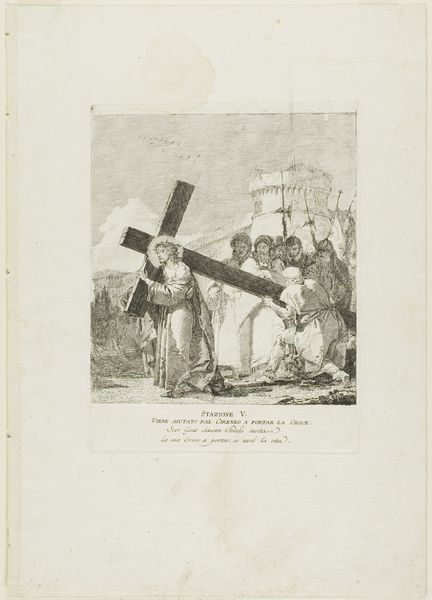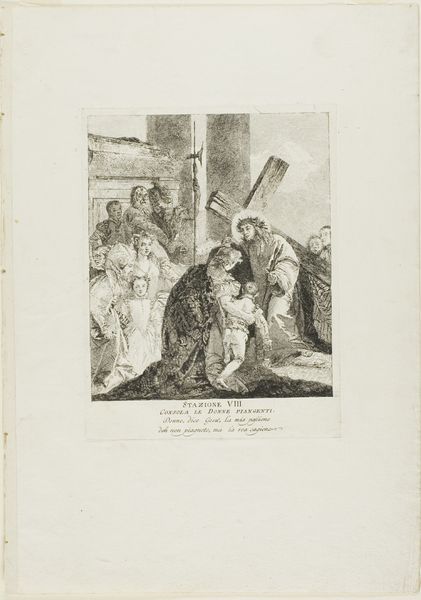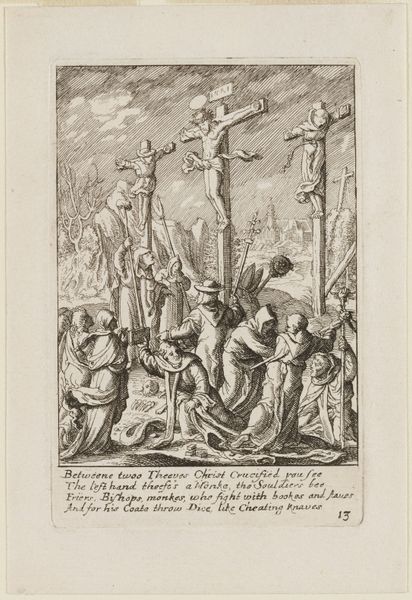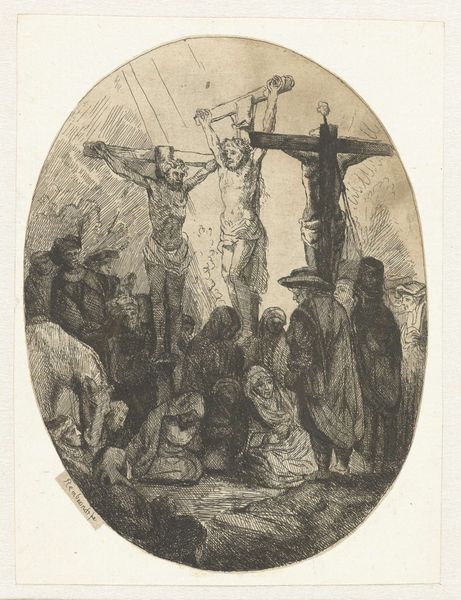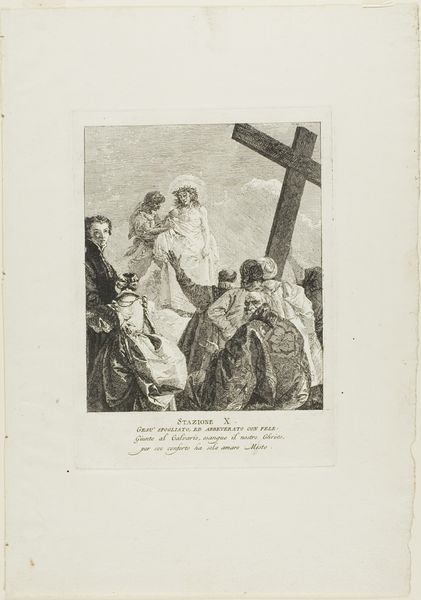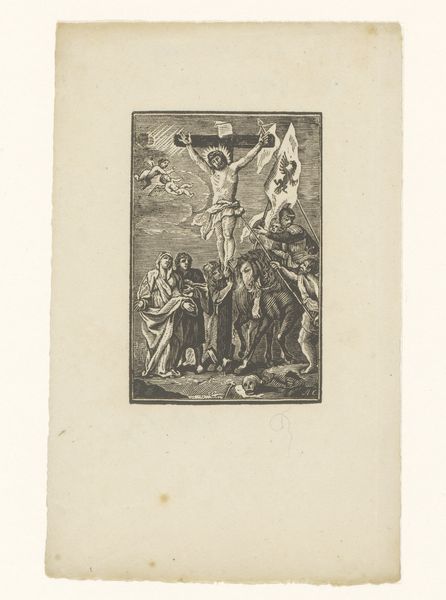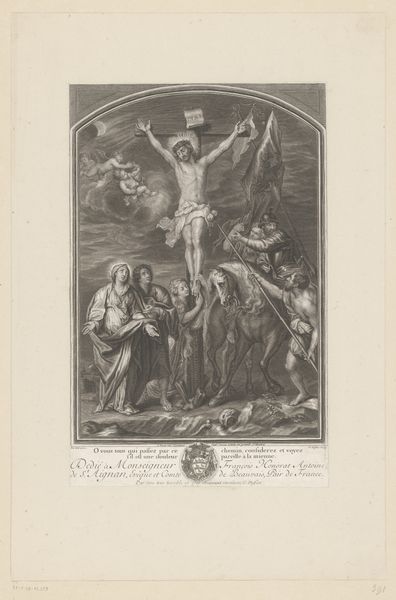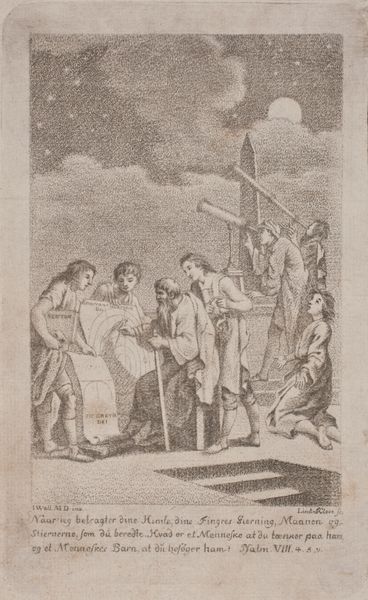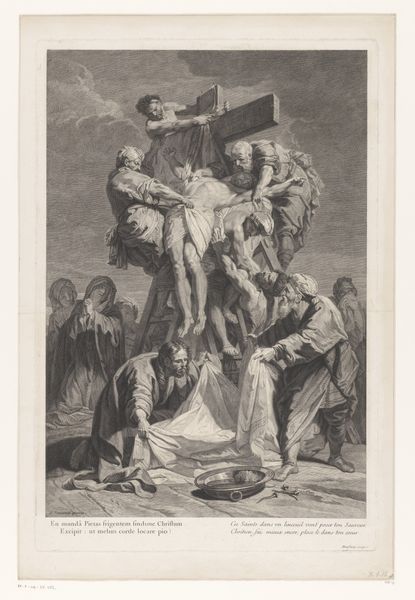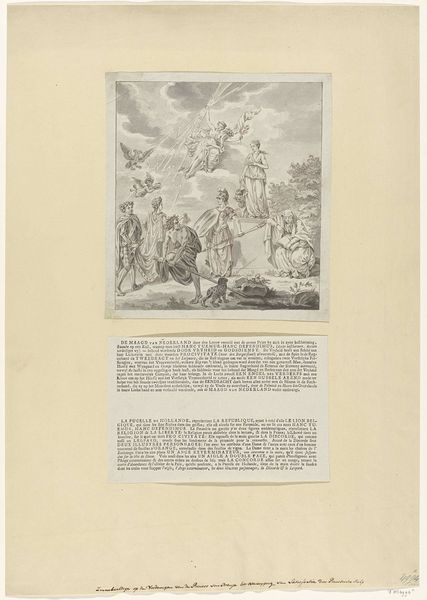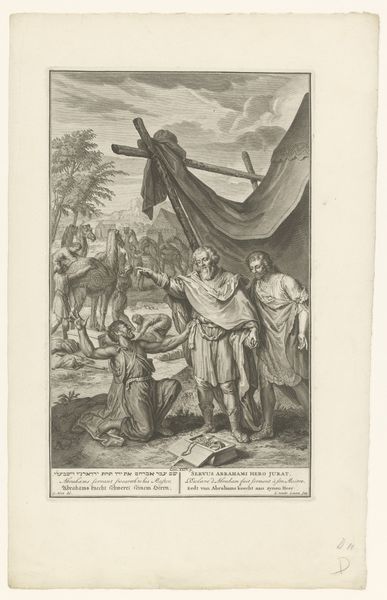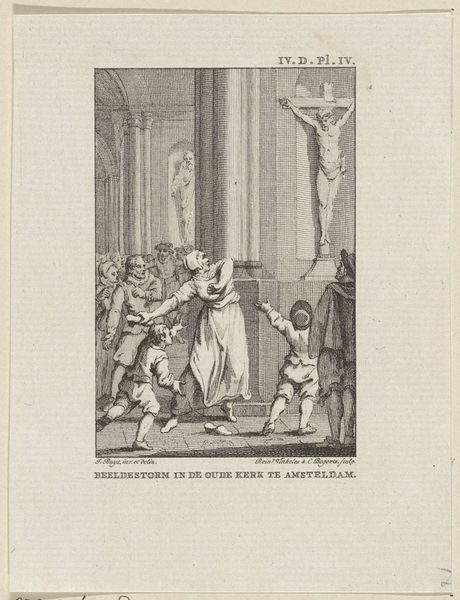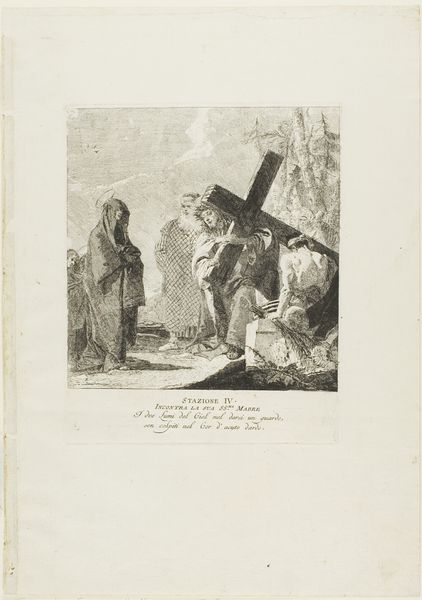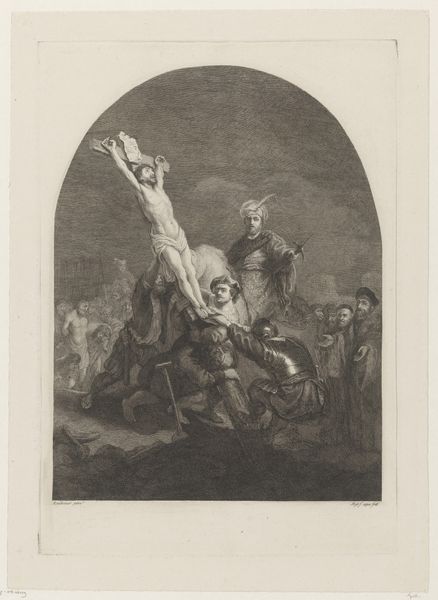
The Crucifixion, plate twelve from Stations of the Cross c. 1748 - 1749
0:00
0:00
drawing, print, etching, paper
#
drawing
#
baroque
# print
#
etching
#
paper
#
history-painting
Dimensions: 225 × 174 mm
Copyright: Public Domain
This print of “The Crucifixion” was made by Giovanni Domenico Tiepolo in the late 1700s. It is an etching, meaning that the artist covered a metal plate with a waxy ground, drew through it with a stylus, and then bathed the plate in acid. This bit into the exposed lines, which were then filled with ink and printed. The relatively low cost and ease of production allowed artists like Tiepolo to disseminate their work widely. Prints like this one made art accessible to a broader public, reflecting a shift in art consumption beyond the wealthy elite. Note the contrast between the delicate linework used to depict Christ's suffering and the more chaotic lines illustrating the surrounding crowd. This emphasizes the emotional weight of the scene, while also subtly commenting on the social dynamics at play. The print medium itself, with its inherent reproducibility, underscores the idea of shared experience and collective memory. It really makes you think about the democratizing power of art.
Comments
No comments
Be the first to comment and join the conversation on the ultimate creative platform.
